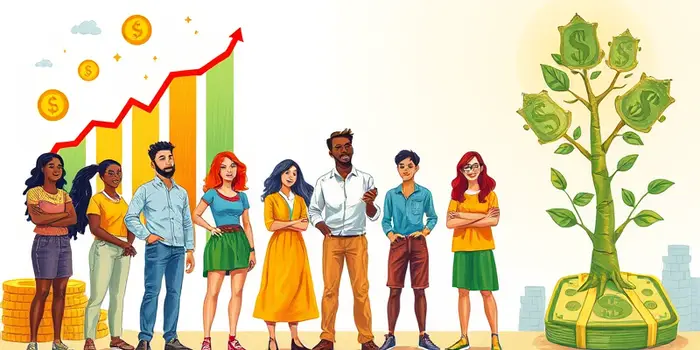
Mastering personal finance is not just a skill—it’s a lifelong asset. When you understand how money works, you open doors to freedom, security, and opportunity. In an ever-changing economic landscape, financial literacy empowers individuals to navigate challenges and seize growth.
Yet despite its importance, most adults remain unprepared. In 2025, the average U.S. adult answered only 49% of basic financial questions correctly. This stagnation has real consequences, both for individuals and the national economy.
Financial knowledge varies widely across demographics. Gen Z scored just 38% on financial literacy assessments, while adults earning under $25,000 a year achieved a mere 28% correct rate. Women, Black Americans, and Hispanic Americans also face significant deficits, leaving them vulnerable to high costs and poor decision-making.
Compounding the problem, only 36% of adults understand basic risk concepts. Without fluency in digital finance tools, insurance, or investment principles, many struggle to plan for the future.
The cost of financial illiteracy adds up quickly. Poor choices, excessive borrowing, and inadequate savings drained an estimated $388 billion from Americans in 2023 alone. On average, each person lost between $1,389 and $1,819 per year over the last five years due to avoidable mistakes.
For Gen Z, the outlook is even grimmer: 80% fear they couldn’t meet basic living expenses after a sudden job loss. These figures reveal deep-seated vulnerabilities that demand urgent attention.
True financial fluency spans multiple domains. Building a strong foundation requires:
Understanding these topics helps people avoid dangerous pitfalls and chart a course toward lasting stability.
Becoming financially literate is an ongoing journey. Start by seeking out engaging, interactive resources rather than dry lectures. Embrace hands-on tools, simulations, and workshops that reinforce practical money management skills.
Individuals and employers both play vital roles. Companies can offer tailored benefits education, while schools and nonprofits can deliver targeted programs to underserved communities.
Over time, these efforts compound much like savings: small gains today yield significant rewards tomorrow.
On a societal level, improving financial literacy reduces inequality, strengthens consumer resilience, and fosters smarter economic choices. Every dollar spent on education pays dividends through reduced social costs and greater collective prosperity.
When individuals gain confidence in handling money, they are less likely to fall into debt traps, more inclined to invest in their futures, and better prepared for emergencies. This virtuous cycle spurs growth and stability across communities and the broader economy.
Financial literacy is not a one-time lesson—it’s a lifelong habit. Commit to continuous learning and practice. Review your budget monthly, revisit retirement plans annually, and stay informed about new financial products and technologies.
By embracing ongoing financial education, you’re investing not just in numbers, but in peace of mind and future opportunities. Make financial literacy your best long-term investment—and watch your life transform.
References













